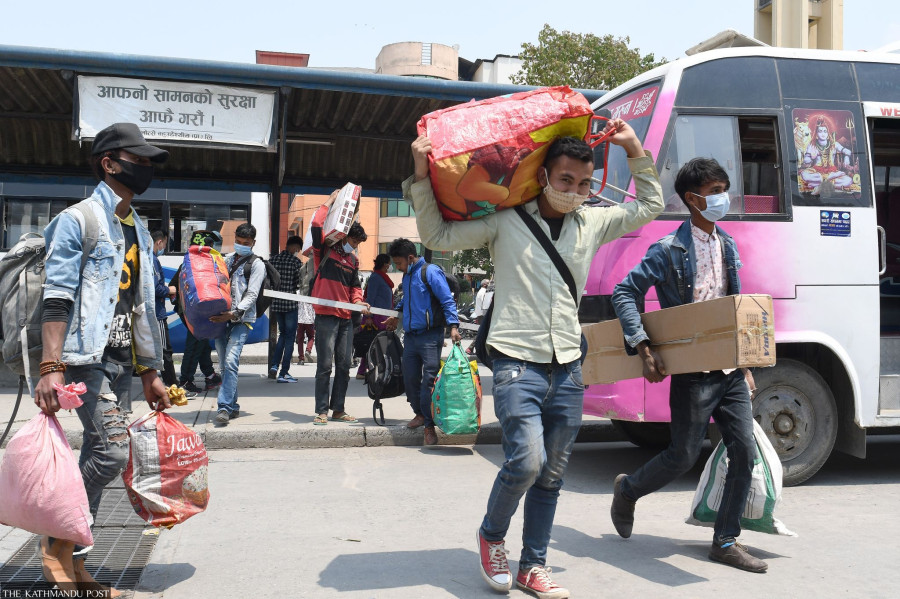National
Government readies guidelines for cash grant to the pandemic-hit poor
Around half a million poor households will receive Rs 10,000 as a one time-cash grant.
Binod Ghimire
The government has finally prepared guidelines for the distribution of cash incentives to the poor households affected by the Covid-19 pandemic.
Around half a million households selected by the respective local governments based on the federal government’s quota will get Rs 10,000 each as a one-time support. The incumbent government, on September 10, had announced that it would provide a cash grant of Rs10,000 each to 500,000 poor households who lost employment and livelihoods to the Covid-19 pandemic. Through a bill to replace the ordinance budget passed by the former government, the Sher Bahadur Deuba government unveiled its plan to spend Rs5 billion to incentivise the poor households across the country.
Workers from the unorganised sector who lost their jobs to the pandemic and haven’t got new jobs and the extremely poor street vendors are eligible for the government succour. Daily wage workers, agriculture labourers, rickshaw pullers, public transport labourers, and the families that lost sole breadwinners to the pandemic are also eligible.
“Local governments are responsible for the collection of applications from the beneficiaries and their verification,” Ritesh Shakya, spokesperson at the Ministry of Finance, told the Post. “The ministry will release funds after the verification process is completed.”
With the guidelines in place, now the local governments can solicit applications from the intended beneficiaries. It will take at least a month for the beneficiaries to receive the grant.
People who qualify for the grant need to apply at the respective ward offices. The ward offices then verify the applications and make recommendations to the local government. The respective local governments have to select the beneficiaries based on the quota prescribed to them.
“The quotas for the respective local governments have been allotted based on the number of households, and human development index and socio-economic status of the people there,” the guidelines document states. Families that have one of their members in permanent or temporary jobs and families that receive the government’s pension or the government’s social security payments are not eligible for the grant.
Those receiving the government incentive must be willing to work voluntarily in the future under the Prime Minister Self Employment Programme.
Although the Ministry of Land Management, Cooperative, and Poverty Alleviation has already identified poor families in 49 districts, the Finance Ministry has authorised the local governments for the selection and verification of the needy.
The Poverty Alleviation Ministry has already identified 391,381 poor households by surveying 1.22 million households in 26 districts. It is also in the process of completing the verification of 290,000 households from 23 other districts and is working on additional 15 districts.
However, the Finance Ministry prepared the guidelines without consulting the Poverty Alleviation Ministry. “The Finance Ministry didn’t consult us. The households we had selected have not been included in the list of beneficiaries of the new assistance,” a senior official at the Poverty Alleviation Ministry told the Post.
When the government imposed a Covid-19 lockdown starting March 23, 2020, the federal and local governments had announced relief packages for the poor people affected by the lockdown and the local governments had made arrangements to distribute food and other relief materials including free meals targeting the daily wage workers and the destitute.
As per the report from the Ministry of Federal Affairs and General Administration, it spent around Rs3 billion and 5.7 million people benefited from the relief packages.



 19.12°C Kathmandu
19.12°C Kathmandu














